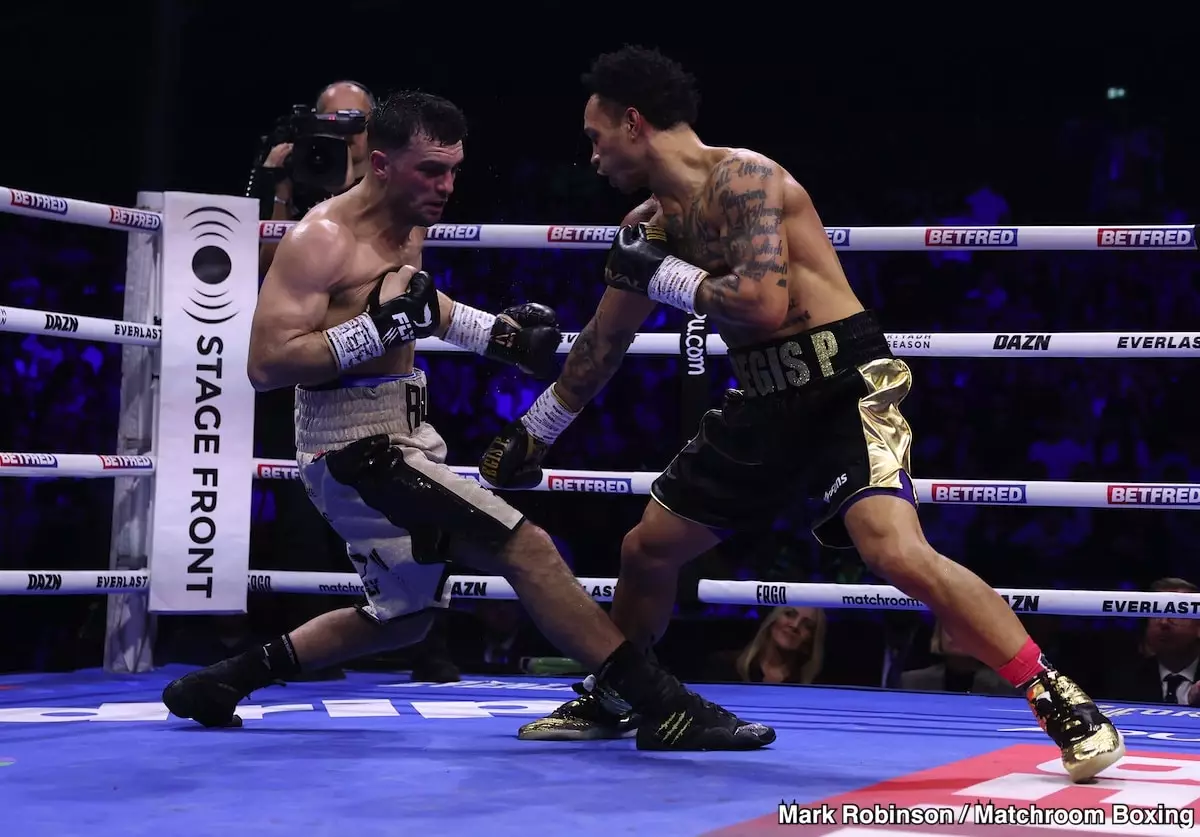In a world where social media often amplifies or diminishes the reality of sports rivalries, the recent exchanges between Devin Haney and Regis Prograis have captured the attention of boxing enthusiasts everywhere. After Prograis’s recent defeat, Haney took to X (formerly Twitter) to suggest that his opponent should consider retirement. This taunt did not sit well with Prograis, who, unfettered, declared he has no intention of hanging up his gloves and remains steadfast in his pursuit of regaining world champion status. This essence of their rivalry encapsulates the heated emotions and competitive spirit that characterize the sport of boxing.
As Prograis shifts his focus to the 147-pound division, a realm filled with unclaimed belts and opportunities, he remains unyielding in his optimism. Meanwhile, Haney’s remarks about Prograis’s performance, particularly mentioning Jack Catterall as his toughest adversary, are seen as baiting from a fighter who possesses a perfect record. These online exchanges may appear trivial at first glance, but they serve to weave a deeper narrative about their respective standings in the boxing hierarchy and the personal stakes involved.
Delving deeper into Haney’s sarcastic suggestion for Prograis to retire, one cannot help but fathom the underlying anxieties of a champion whose own future hangs precariously on his next few fights. With an impeccable record of 31-0, Haney could be perceived as feeling the pressure to defend his title against increasingly formidable opponents like Catterall and others in the burgeoning welterweight division. His invitation for Prograis to join his training camp, while seemingly casual, indicates a desire to mentally gauge his rival ahead of what could be a crucial period for both fighters.
On the other hand, Prograis’s retort, labeling Haney as „bipolar,“ adds an intriguing layer to their rivalry. This description, while perhaps hyperbolic, underscores Prograis’s frustration with Haney’s inconsistent opinions and ever-shifting measurements of prowess. In the ring, both fighters must embody unwavering confidence, yet the verbal skirmishes outside the ring reveal insecurities that might threaten their bravado.
Compelling narratives often intertwine the fates of fighters in boxing, and right now, both Haney and Prograis are at pivotal junctures in their careers. For Prograis, the opportunity to capitalize on a move to the 147-pound division doesn’t just represent a fresh start; it symbolizes a chance for redemption. Should he secure a title in this competitive weight class, all eyes will undoubtedly shift to Haney, particularly if the latter falters against Catterall or future opponents, such as Ryan Garcia.
Haney, once perceived as an indomitable force, now finds himself in a position where the tides of fortune can turn swiftly, and he could suddenly become the one on the defense. His comments regarding Prograis, especially the deliberate jabs at his last performance, may stem from a desire to project confidence and control in a sport where both can slip away in an instant.
As analyzed in Prograis’s reflections on both Haney and Catterall, the matter of who hits harder extends beyond mere statistics; it delves into the approach and technique that delivers effective power in the ring. Prograis’s assertion that Catterall is the harder puncher serves to bolster his belief that he possesses the tools to defeat Haney or any other top contender.
The discourse around power and performance resonates that the essence of boxing extends beyond just stats, requiring strategic craft. Fighters like Prograis recognize the nuances of this art, understanding that physical attributes intersect with mental resilience. Thus, their verbal exchanges not only engage fans but elevate their personal narratives, building an anticipation that sets the stage for monumental bouts ahead. As Prograis prepares for new challenges and Haney bolsters his defenses, fans eagerly await what unfolds next in this saga, a reminder of boxing’s nature to captivate and surprise.


Napsat komentář